Ever wondered if your data is stored in the cloud, why does it not get drenched when it rains?
(Sorry for the lame joke)
Today I’m going to clear all your doubts around Cloud Storage and I promise no more lame jokes. 🙂
If you are a beginner, this article would prove to be a handy guide for you. Additionally, it would also help you understand the important concepts that I discuss in all my Cloud Storage Reviews.
In this article, I’m going to cover everything about Cloud Storage – its meaning, its working, pricing, advantages and disadvantages, and why you should start using cloud storage right away!
I have also discussed some popular and trusted cloud storage services, so you can check them out!

Hopefully, by the end of this article, you’ll have a much better understanding of cloud storage services. So, with no more delay, let’s get started!
- What is Cloud Storage?
- How does Cloud Storage Work?
- Advantages of Cloud storage
- Disadvantages of Cloud storage
- Features of Cloud Storage
- How to use Cloud Storage?
- Cloud Storage vs Cloud Computing
- Some Popular Cloud Storage Services
- Cost of Cloud Storage and How to Purchase it?
- Is Your Data Safe on Cloud Storage?
- Why Should You Use Cloud Storage?
- Paid vs Free – Which Cloud Storage Should You Get?
- Conclusion
- FAQ
What is Cloud Storage?
To understand what a cloud storage is, we first need to know what the term “cloud” means. (And it’s definitely not our regular cloud, mind you!)
A cloud is basically a network of servers that you can access through the Internet.
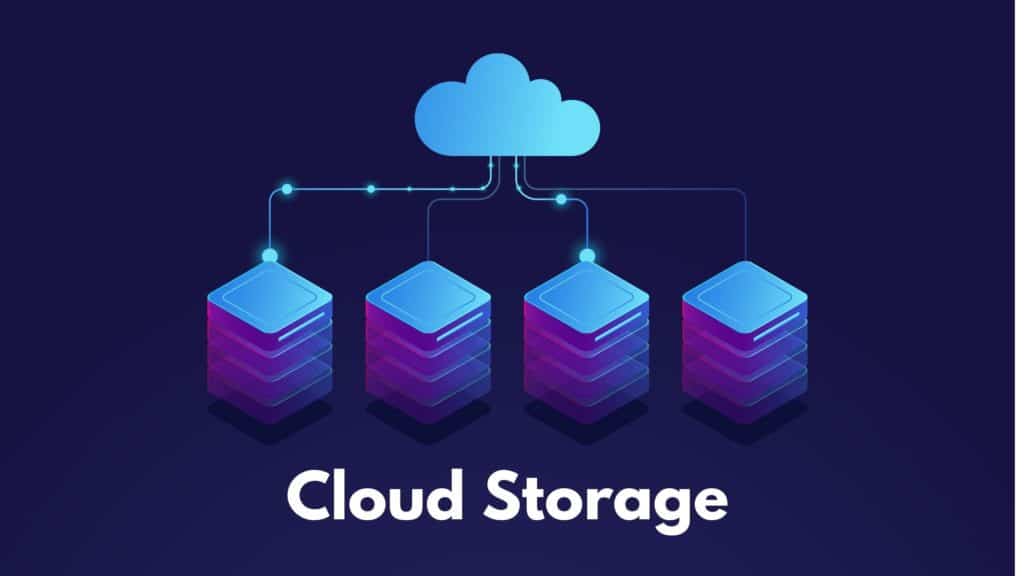
Therefore, Cloud Storage is a method of storing your data on remote servers located inside large data centers. Your data can be easily accessed online.
Cloud storage is the most popular way of storing data these days. Some common examples might be Google Drive, Dropbox, etc.
How does Cloud Storage Work?
Cloud Storage might look like a complex concept. But, it’s in fact easier than you think.
Let’s understand the working of a cloud storage step by step.
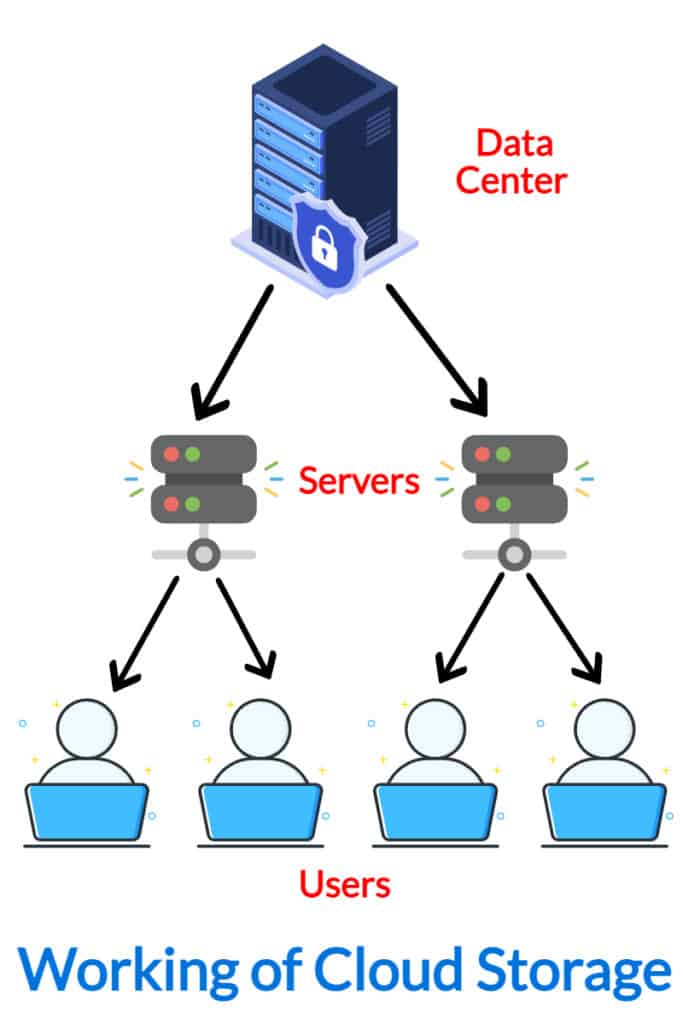
- A cloud storage company purchases storage space from large data centers.
- This space is allocated to their customers (like you and me) for free or for a price.
- When we upload a file on our cloud vault, it is actually stored on a small portion of the servers located inside data centers.
- These data centers are protected with heavy security and regular maintenance.
- Reputed cloud storage services offer security features like zero knowledge encryption and two factor authentication for enhanced user security. (But what do these terms mean? Well, keep reading to find out!)
Advantages of Cloud storage
Cloud storage provides many advantages over physical storage devices. Let’s check out some of them.
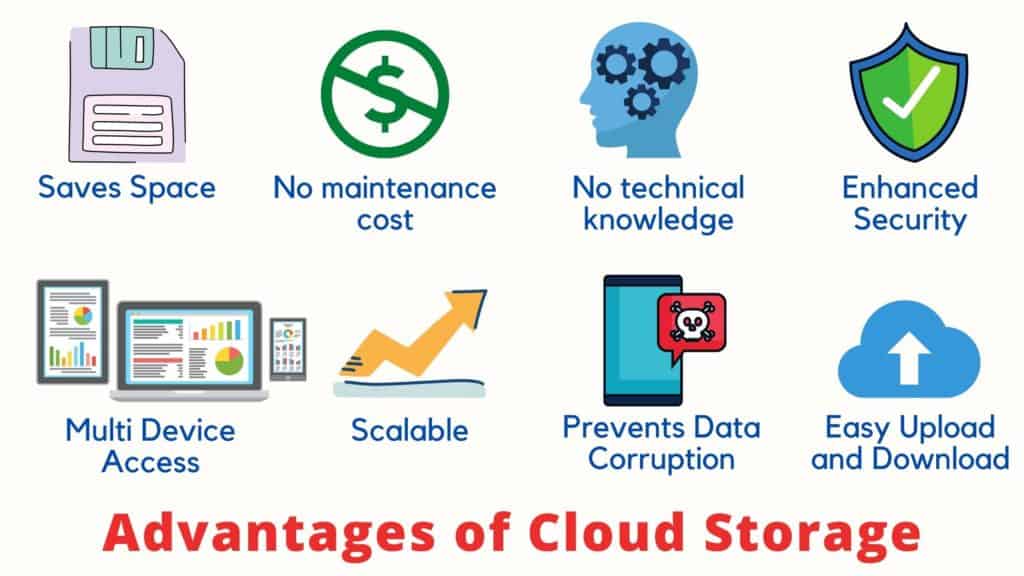
1. Saves Local Space
Cloud Storage lets you upload files on the cloud and delete them from your local storage! This saves up a lot of memory on your device and proves to be a suitable alternative for expensive HDDs.
2. No Maintenance Cost
For businesses organizations, Cloud Storage cuts down the cost of purchasing physical storage devices and employing IT staff for server maintenance, etc.
3. No Technical Knowledge Required
You don’t need any technical know-how to get started with cloud storage. It’s so easy that even a 5-year-old can start using it right away!
Everything is managed by the cloud service provider. All you need to do is sign up and start uploading your files!
4. Enhanced Security
Because it stores a secondary copy of your data, online storage proves to be a savior in cases of theft or damage of your local device.
5. Multi Device Access
You can access your cloud vault from anywhere, anytime, and any device. Most cloud providers offer powerful desktop, mobile, and web apps.
6. Scalable
Unlike an external hard disk that is expensive, occupies physical space and has a limited storage capacity, cloud storage is cheaper, takes up no actual space, and its capacity can be expanded or reduced as per your needs!
7. Prevents Data Corruption
Unlike external HDDs where your data is stored locally, cloud storage servers are placed within highly protected data centers with 24/7 security.
Cloud storage uses RAID systems as an efficient backup solution. They keep online backup of your data in different configurations. So, even if a data server crashes, you can still access your files effortlessly.
8. Easy Upload and Download
You can upload your official documents like License, PAN, Aadhaar Card, Marksheets, etc on the cloud and download them whenever required!
If you wish to dive deeper, check out my article on Cloud Storage vs Local Storage.
Disadvantages of Cloud storage
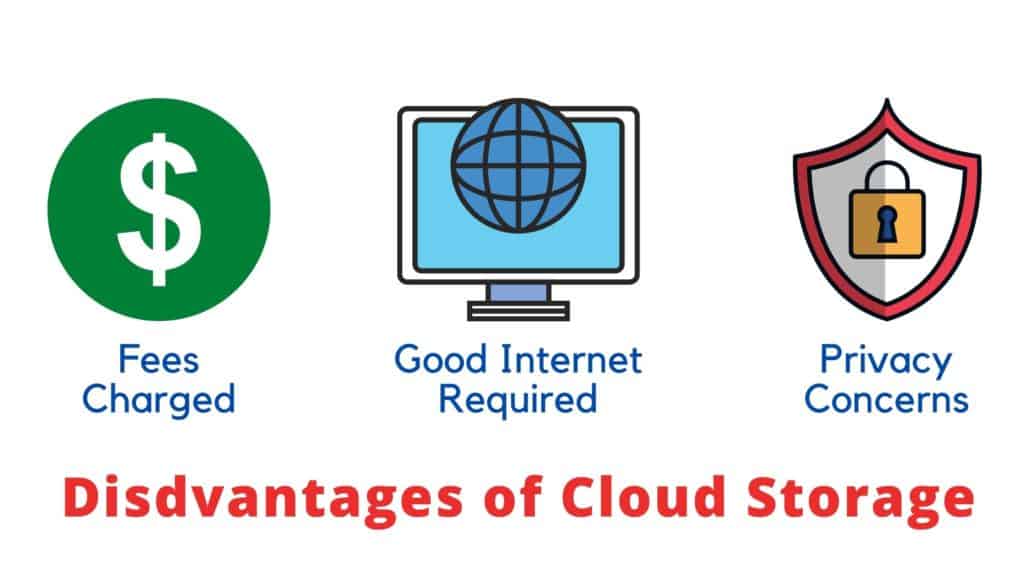
1. Fees Charged
You can get small amounts (up to 15 GB) of cloud storage for free. But if you need more space, you have to pay a monthly, yearly, or a lifetime fee to access cloud storage.
2. Good Internet Required
Cloud storage services do not work offline. You need an active internet connection with good speeds for uploading and downloading your files. In my opinion, a minimum of 2MBps is a must for accessing cloud storage.
3. Data Privacy Concerns
All your data is stored on third party servers. So, before trusting a cloud provider, always check if it uses good encryption standards, has a clean privacy policy, and is not associated with the 5 Eyes Alliance. (Read about it below!)
Features of Cloud Storage
Every reputed cloud storage vendor offers some significant features to its customers to ensure better security, accessibility, and convenience. Let me walk you through some of them.
1. File Versioning
In simple terms, Versioning is an undo option with its time limit extended up to days or weeks! It lets you track, preview, and restore the older versions of your files.
For example, pCloud allows file revisions from the last 30 days!
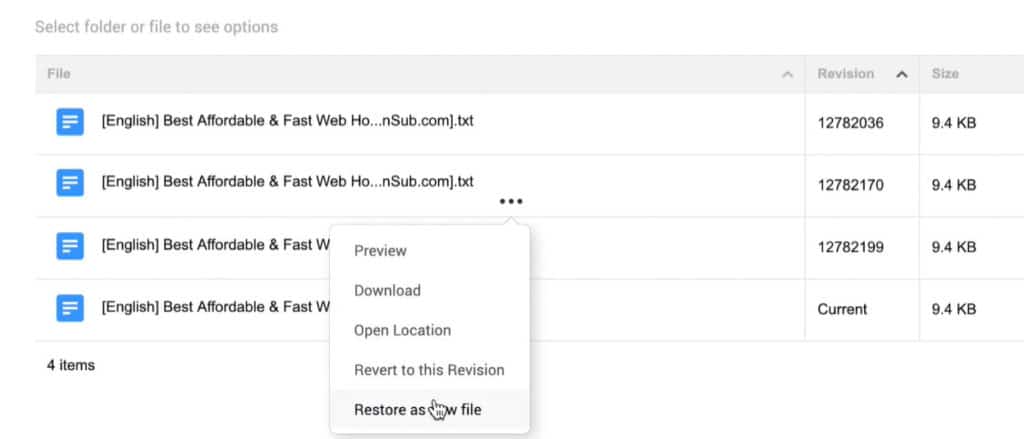
This feature is helpful in case you accidentally edit a file and want to revert to the previous versions.
2. Trash
Every cloud storage offers a trash folder to store your deleted files. So, when you delete a file from your vault, it is not immediately removed.

It is stored in the trash folder from anywhere around 30-180 days depending on the cloud provider.
For example, Icedrive offers an unlimited trash option. This means your files would remain in Trash unless you manually remove them.
3. Advanced Sharing
Cloud Storage offers better file sharing options. For example, if we talk about pCloud, it provides more customized options for sharing file links.
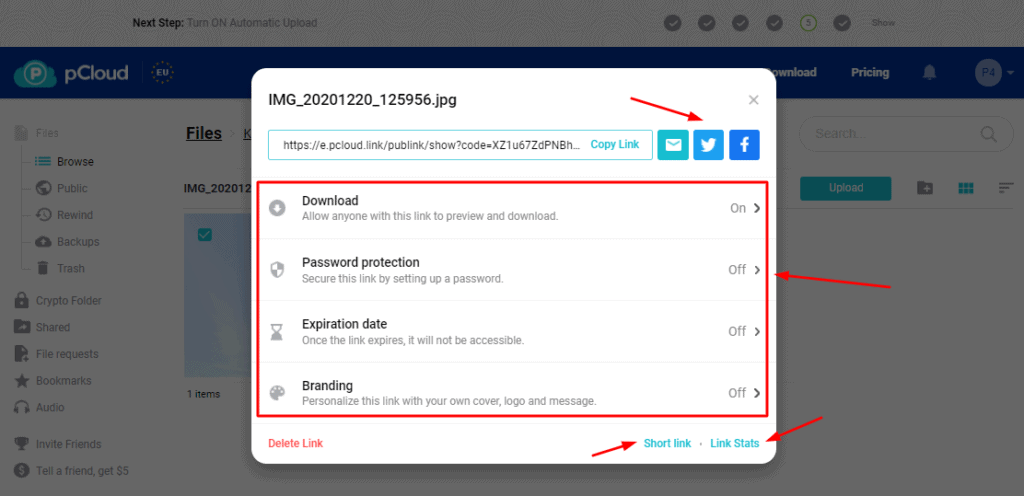
It lets you:
- Protect shared files with a password
- Set an expiry date on your shared links
- Select who can upload files to a shared folder
- Add your own branding to the shared link
Along with this, it also lets you view link statistics. For instance, how many users:
- Opened the links
- Viewed/downloaded the files, etc
4. Virtual Cloud Drive
This feature is not seen in most cloud storage services. However, cloud storage giants mostly provide a virtual drive with their desktop apps.
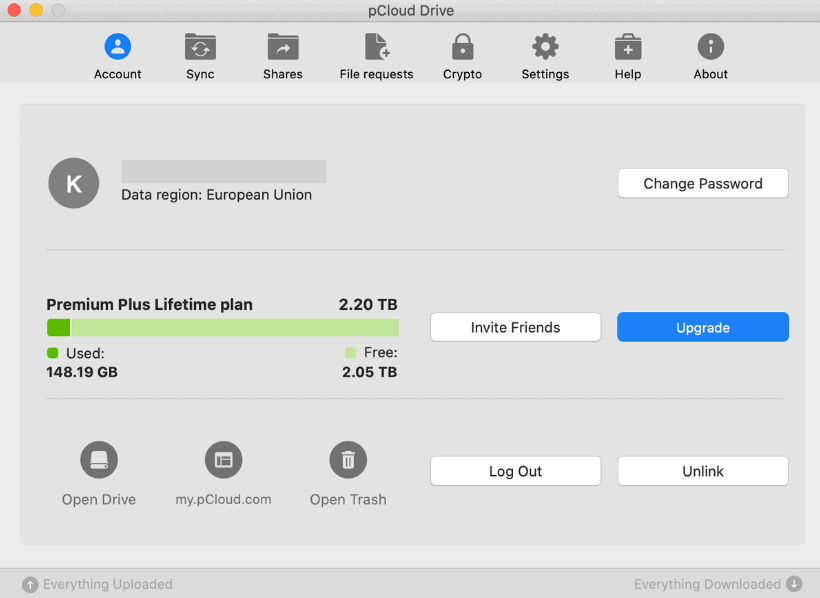
So, as soon as you download their desktop apps, a drive is created on your computer that is virtual. This means that it does not take up any space on your local device.
It works like an external hard drive attached to your computer. You can move, copy, paste, or make any changes on this cloud drive and all the changes will remain synced with the cloud. Cool, isn’t it?
5. Sync
Sync feature is essential if you work on multiple devices. It ensures that all the changes that you make on your cloud vault through one device are synced on your other devices as well.
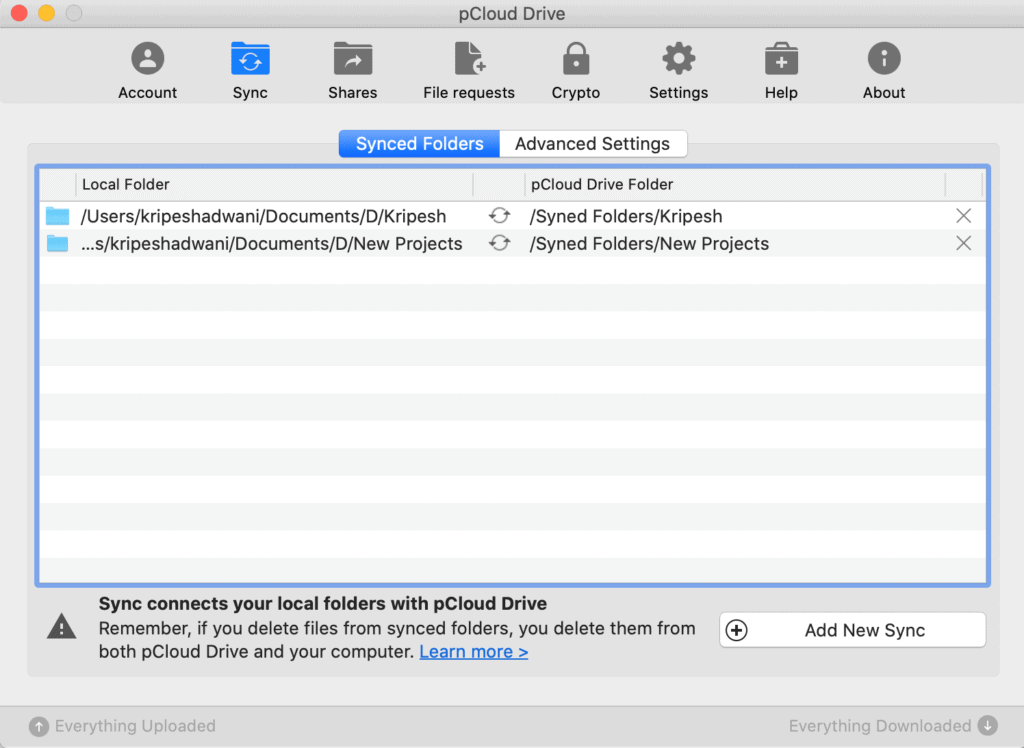
The top cloud storage providers like pCloud also offer advanced syncing functionality with their desktop apps, like Block Level Sync and Selective Sync. Let’s understand what they are.
- Selective Sync lets you specify folders from your local device that you wish to sync with the cloud. So, whatever changes (file additions/deletions/editing) you make on these folders will be updated on the cloud as well.
- Block Level Sync is helpful for saving up time. If you are updating your synced files, it only syncs the new changes with the cloud and not the entire files.
6. Security
Most cloud storage services offer security features like Two factor Authentication and Zero Knowledge Encryption.
Now what are these? Let’s try to understand these terms.
- Two Factor Authentication: This is a method of verification that is used to confirm your identity while logging into a website. For example, you must’ve seen how we receive OTPs on our mobiles before making a payment. That is a type of 2FA.
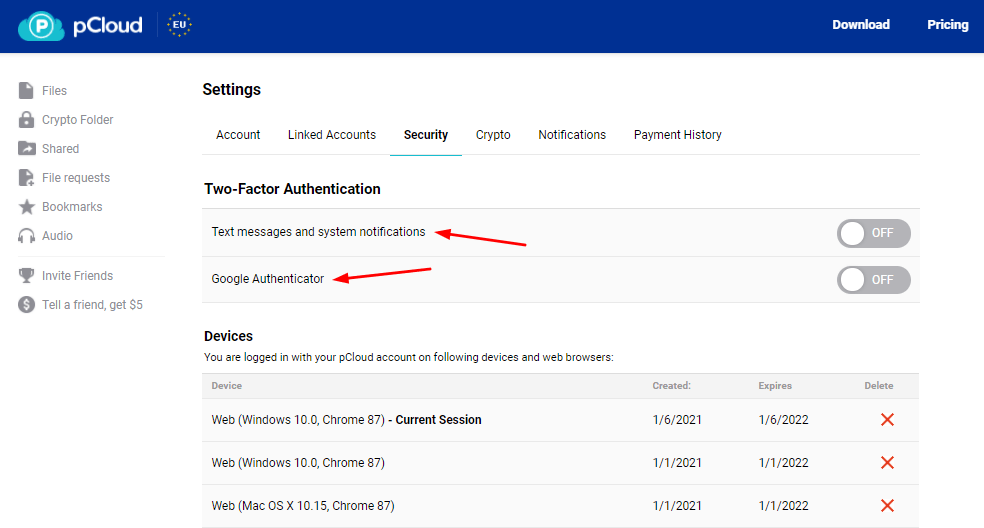
Cloud service providers also let you enable 2FA so you need to provide a unique code along with your login credentials to confirm that it is you.
You can also find apps like Google Authenticator, Authy, etc that can generate 2FA codes for your websites for safer logins. For more details, you can check out my detailed article on 2FA Apps.
- Zero Knowledge Encryption: This is the top-most level of security. If a service is zero-knowledge, this means that nobody can access the data stored with them.
Zero knowledge encryption algorithm encrypts your data in such a manner that nobody else except you can decrypt it, not even the company’s employees, their staff, or even their CEO!
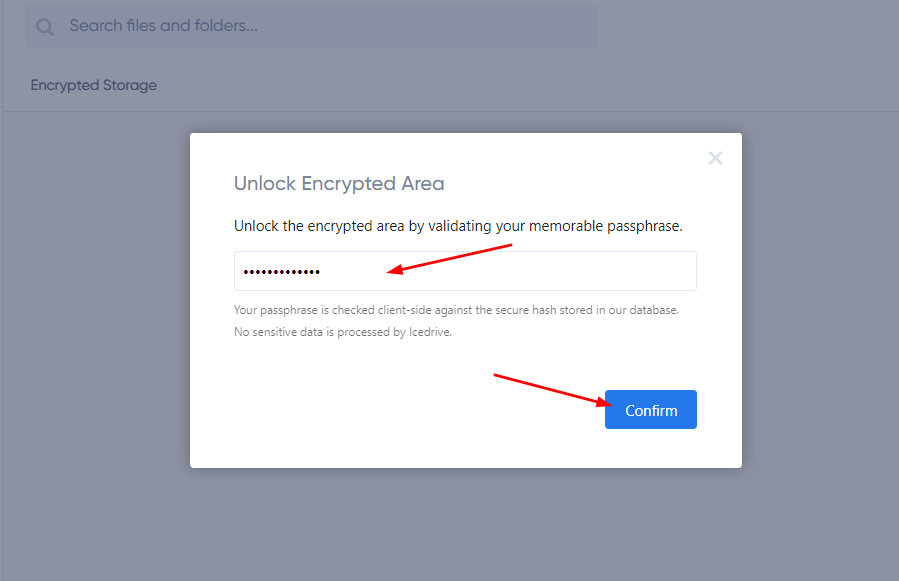
Cloud storage providers like Icedrive and pCloud offer an optional zero knowledge encryption that can be applied for protecting a specific folder.
Zero Knowledge Encryption is the basis feature of every password manager.
7. Backups
You can see the auto-backup feature on the mobile apps of many cloud storage providers.
When you install their mobile app, you can select certain folders that would be automatically backed up on the cloud and recent changes would be synced too. Most cloud providers offer auto-backup of your photos.
How to use Cloud Storage?
You can access cloud storage services through web apps or softwares designed for them. For example, Google Drive can be accessed as a web app and also as a desktop or mobile application.
Cloud storage services provide a user friendly interface with a file manager. Using the file manager, you can perform basic file operations like uploading, deleting, or copying files from your vault, etc.
Cloud Storage vs Cloud Computing
Well, many people use both these terms interchangeably. Yes, they are related to the “cloud”. But, they don’t really refer to the same thing.
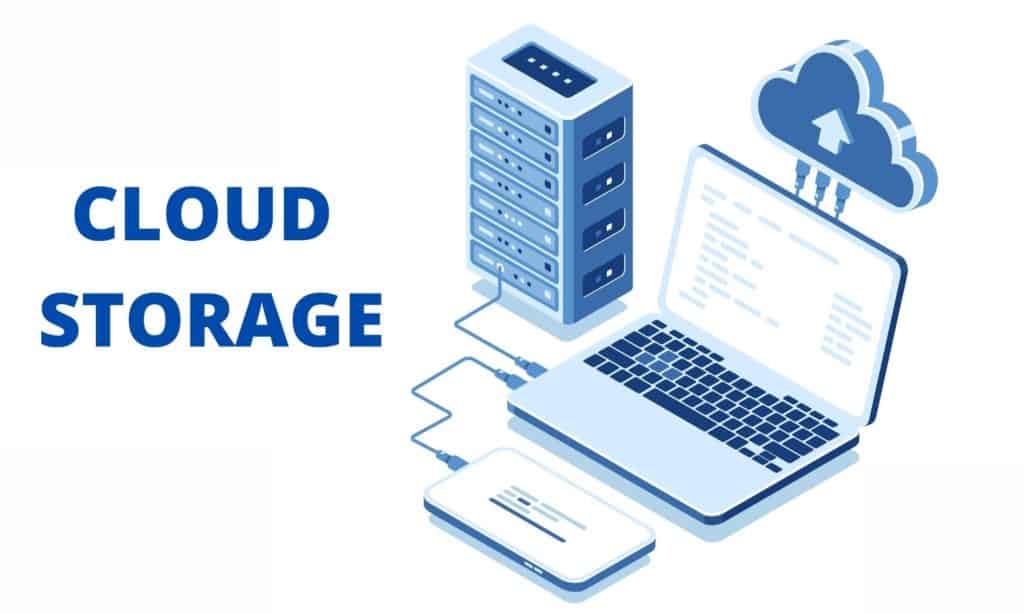
A Cloud Storage allows you to store your data on the cloud which you can access from anywhere and any time through the Internet. Cloud Storage is all about ‘data storage’.
Some popular examples of cloud storage are Google Drive, OneDrive, Dropbox, pCloud, Sync, etc.

Whereas, Cloud Computing refers to using the computational power and resources of the cloud’s computers to get our tasks done.
Think of it as using someone else’s high-end computer to finish our bulky design or coding projects!
Cloud computing services might be any cloud-based tools that you can access on a web-browser.
Some popular examples are web apps like Canva, Zoom, Office 365, all Google Apps (Gmail, Calendar, Meet, etc), Thinkific, Teachable, etc.
Where cloud storage is only limited to storing your data online, cloud computing helps you use online resources to perform different tasks!
Some Popular Cloud Storage Services
Google Drive
Google Drive is one of the most popular cloud solutions used by millions of users around the world.
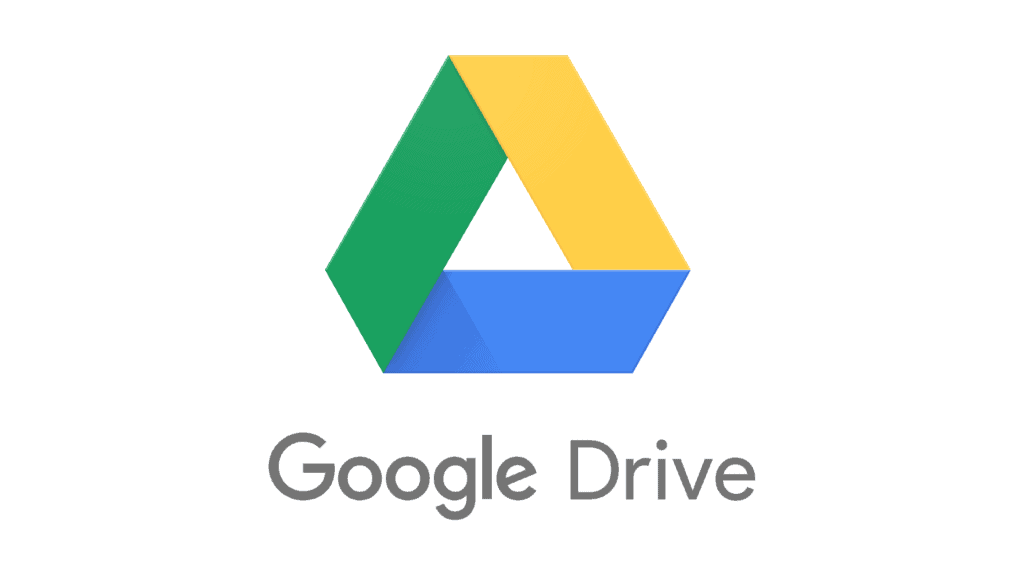
With its free plan, you get 15 GB free of storage space, which is quite good!
It works smoothly with all Google products and has one of the best team collaboration features. However, it lags in terms of privacy and advanced sharing functionalities!
pCloud
pCloud is an esteemed cloud storage platform based in Switzerland. With the free account of pCloud, you get 10 GB of free cloud space for storing your files.
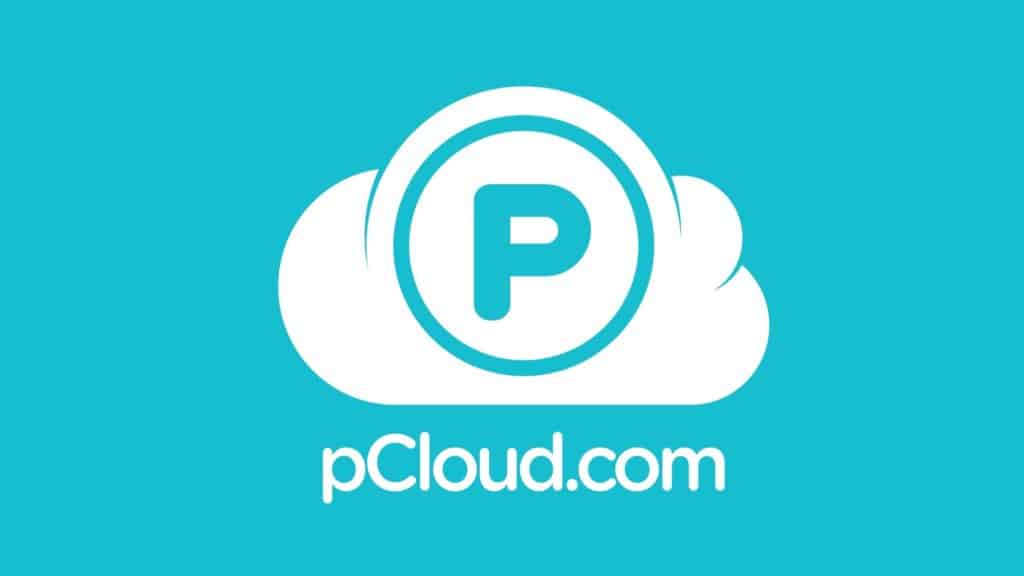
It’s a super efficient cloud storage that offers you impressive speeds, advanced sharing, and good sync functions. However, the only downside of pCloud is its expensive add-ons!
Dropbox
Dropbox is the first cloud storage service ever launched! It offers 2 GB space for free and is the best option for syncing your files in different configurations.
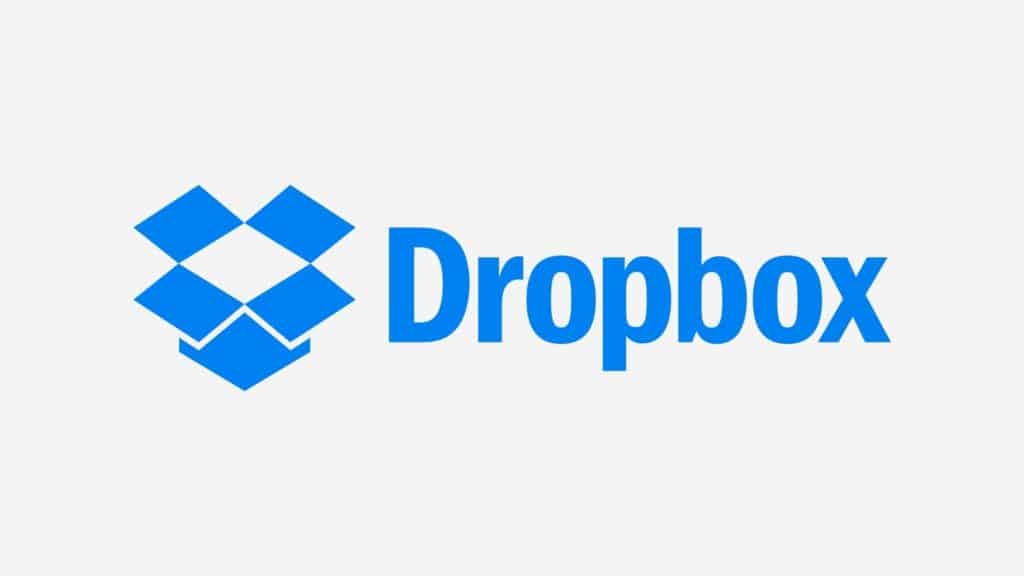
It offers integrations with services like Office365, GSuite which make it an efficient option for collaboration. However, it lags in terms of security.
Icedrive
Icedrive is a newbie in the cloud storage market! Featuring one of the best user interfaces and great speeds, the USP of Icedrive is its affordable pricing plans.
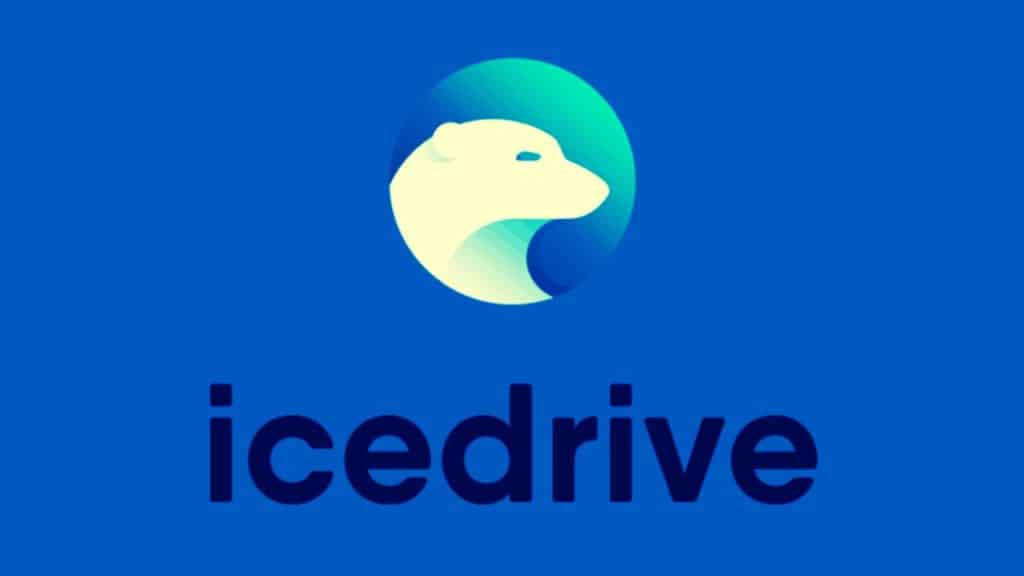
You can even get 10 GB cloud space on its free plan.
Being a new player, it is still making a lot of improvements in its features. But its GDPR compliance and optional zero knowledge encryption make Icedrive a highly reliable cloud storage solution!
If you wish to know more about the best cloud storage services, you can check out my article on Best Cloud Storage for 2024.
Cost of Cloud Storage and How to Purchase it?
You can find free as well as paid options for Cloud Storage solutions. A free cloud storage can be availed by simply signing up through your email.
The most popular example is Google Drive that assigns you 15 GB free space as soon as you sign up on Google!
Generally, you can get anywhere between 2 to 50 GBs cloud storage for free. However, if you need additional space, you can opt for the paid plans.
Now, different cloud service providers offer storage space at different costs. It all depends on your requirements. You might opt for a monthly or a yearly plan, as per your requirements.
But the important thing to note here is – even though you might not use any cloud data, you still need to pay the monthly fee if you go for a paid service!
Some cloud providers even offer their lifetime plans that are complete value for money in the long term! For example, Icedrive offers 1 TB of cloud space for lifetime at $149.
If you need help with deciding the perfect cloud storage for your needs, you can check out my Cloud Storage Buying Guide video!
Is Your Data Safe on Cloud Storage?
The safety of your data primarily depends on your cloud vendor. Therefore, you should always be very careful while choosing cloud storage.
For the maximum security of your data, always ensure your cloud provider:
- Uses standard encryption methods to protect your files
- Offers zero knowledge encryption so nobody (except you) can access your vault
- Provides security features like Two Factor Authentication
- Does not fall under the 5 Eyes Alliance
You must be wondering what a 5 Eyes Alliance is. Let me quickly explain it to you.
The 5 Eyes Alliance is a partnership between 5 countries – United Kingdom, United States of America, New Zealand, Australia, and Canada.

These countries collect their citizens’ personal information and share it with others in the alliance whenever needed.
In other words, they spy on their users’ data, which is definitely not good from the point of privacy and security.
Anyway, what are the factors that you should consider before choosing a cloud storage? You can check out my detailed video on Cloud Storage Buying Guide to find that out!
Why Should You Use Cloud Storage?
The Cloud Storage market is booming right now! According to Statista, over 1.8 billion people are using cloud storage today, and so should you!
A cloud storage simplifies your life by:
- Saving up space on your local device
- Letting you access your files anywhere and anytime
- Allowing you to share your files with friends and family with advanced security and better convenience
- Keeping a backup of your important files in case they get lost or misplaced
Paid vs Free – Which Cloud Storage Should You Get?
Well, all of us are already using cloud storage services like Google Drive, Dropbox, or iCloud in our day-to-day lives.
These are sufficient for normal users who only need a space to store their personal pictures and documents.
However, if you regularly need to work on extensive projects like Android projects, software development, graphic designing projects, video editing, etc, then it’s better to invest in a paid cloud storage.
It would not only fulfill your storage requirements, but also provide automated cloud backups, better security, and loads of advanced functions.
In my opinion, pCloud, Icedrive, and Sync would be powerful paid cloud storage options!
Conclusion
Cloud storage services are rapidly gaining popularity and have become the most efficient solution for storing our data today! There are hundreds of cloud providers in the market. But which one should you go with?
I personally use a combination of pCloud and Icedrive for storing my files.
Where pCloud offers advanced sharing options and lightning fast speeds, Icedrive offers a better overall privacy! This allows me to enjoy the best of both worlds!
If you are planning to get cloud storage soon, do check out my Cloud Storage Buying Guide video. I hope it helps you choose the perfect cloud provider for your needs.
Anyway, if you liked this article and want to equip yourself with more technical knowledge, subscribe to my Newsletter. I’ll keep updating you with insightful content regularly!
This is Kripesh signing off. Stay home and keep learning, guys! I’ll see you in the next post.
FAQ
How do I access cloud storage?
You can access all cloud storage services from your web browser. But some cloud providers also provide desktop and mobile apps for more convenience.
Is Google Drive a cloud?
Yes, Google Drive is one of the most popular cloud storage that allows you to store your data and edit files online!
It features powerful desktop and mobile apps, and a very efficient web version so you can access your data anywhere and anytime!
Are all cloud storages same?
No, every cloud storage provider focuses on different factors. Where Google Drive focuses on providing better collaboration functions, Icedrive aims to provide better cloud security and friendly interface to its users.
Does cloud storage need the Internet?
Yes. Cloud storage services cannot work offline. You need a good internet connection (of at least 2 MB/s) to upload, download, and preview your files on a cloud storage.
What are the Best Free Cloud Storage Providers?
How do I access the cloud on Android?
Most cloud storage services have dedicated apps for Android devices that you can download from the Play Store.
How do cloud storage sites make money?
Cloud storage sites make money by offering monthly, yearly, or lifetime subscriptions of their storage space to users.
Does cloud storage have unlimited data?
No, cloud storage companies purchase gigantic amounts of storage space (in Petabytes) from data centers and then rent it to their clients on a monthly/yearly subscription basis.
How is data stored in the cloud?
A cloud is nothing but a collection of servers placed within enormous buildings called data centers. When we upload a file on the cloud, it is stored on these servers. You can access these files any time through the Internet.
What is a virtual hard drive?
Renowned cloud providers like pCloud and Icedrive operate like a virtual drive when you install their desktop apps.
This drive does not take up space on your local device. Any changes you make to it are synced to the cloud. You can think of it as an external hard drive attached to your system!
Is there a size limit on the file I store or transfer using Cloud Storage?
It all depends on the cloud storage provider. For example, Icedrive offers a 3 GB daily bandwidth on its free plan!
What is the difference between web server and cloud storage?
A web server stores your important files and data. Whereas, a cloud storage service is a more fine tuned version of a web server.
It is equipped with additional functions like file sharing, syncing, versioning, multi device access, security and encryption, etc.
What is the difference between cloud storage and physical storage?
The basic difference between them is that physical storage stores your data on your local device, while cloud storage stores your data online.
I have compared them in terms of cost, speeds, security, performance, sharing, scalability, and a lot more. You can check out my article on Cloud Storage vs Physical Storage to know more!
Who owns cloud storage?
The world’s largest corporations like AWS, Microsoft, Apple, etc have invested vast amounts of money into building data centers around the world.
Smaller cloud storage providers purchase servers in these data centers and rent it to their users on a monthly or yearly subscription.
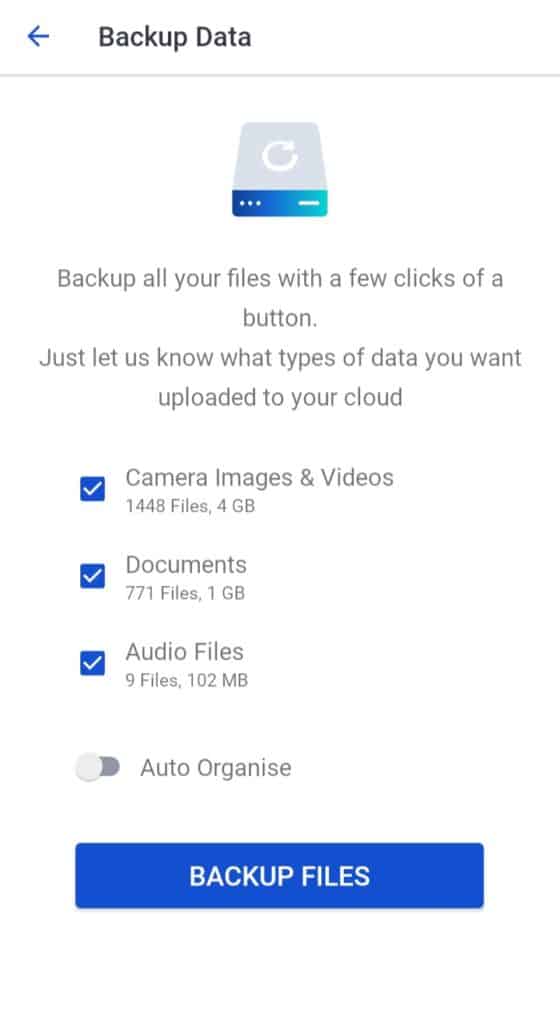


excellent presentation
very well in simple terms explained
Thank you so much.